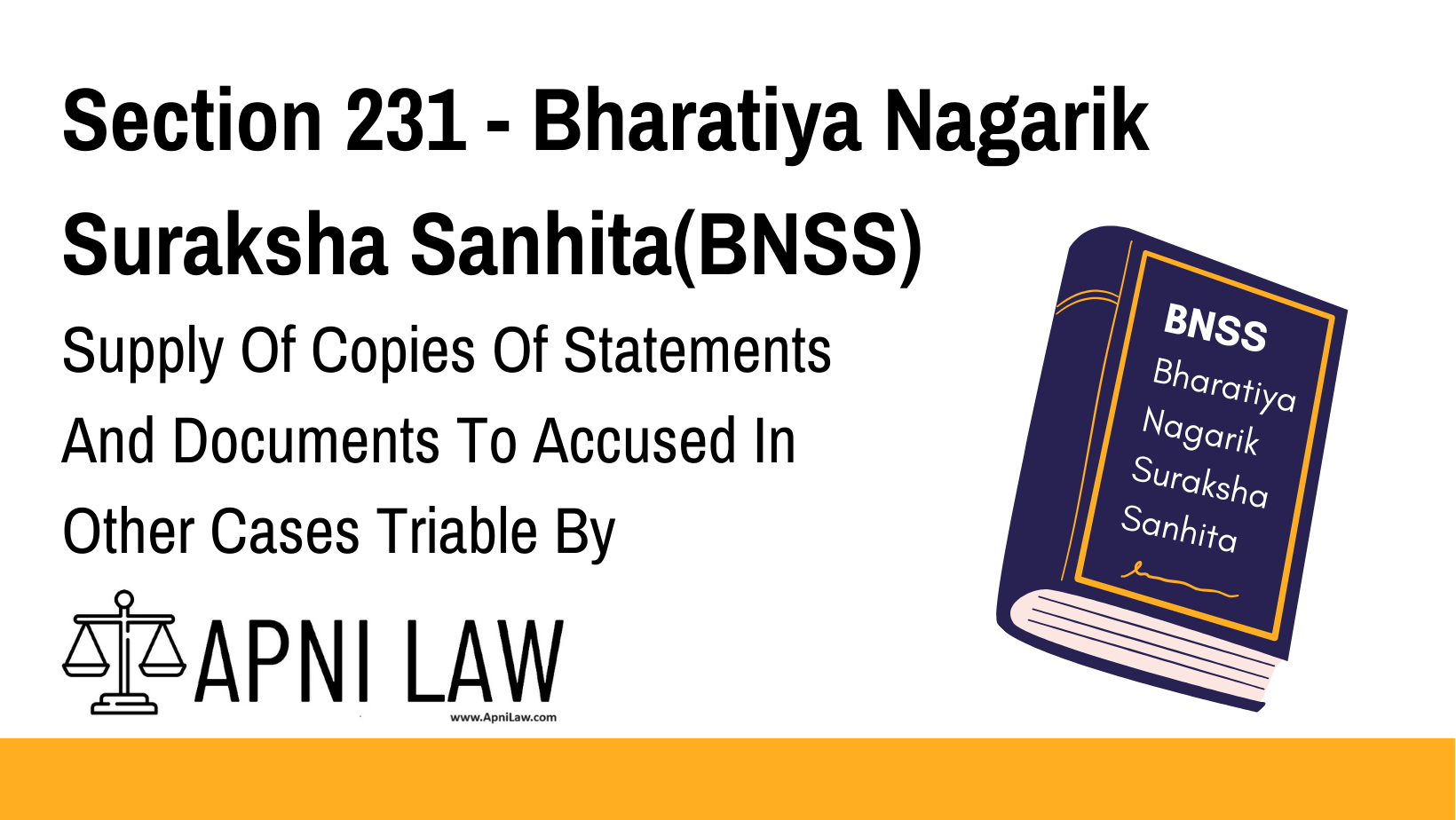Code:
Where, in a case instituted otherwise than on a police report, it appears to the Magistrate issuing process under section 227 that the offence is triable exclusively by the Court of Session, the Magistrate shall forthwith furnish to the accused, free of cost, a copy of each of the following:—
(i) the statements recorded under section 223 or section 225, of all persons examined by the Magistrate;
(ii) the statements and confessions, if any, recorded under section 180 or section 183;
(iii) any documents produced before the Magistrate on which the prosecution proposes to rely:
Provided that if the Magistrate is satisfied that any such document is voluminous, he shall, instead of furnishing the accused with a copy thereof, direct that he will only be allowed to inspect it either personally or through an advocate in Court:
Provided further that supply of documents in electronic form shall be considered as duly furnished.
Explanation
This section deals with the procedure to be followed by a Magistrate when a case is instituted otherwise than on a police report and the Magistrate finds that the offence is triable exclusively by the Court of Session.
In such a scenario, the Magistrate is mandated to furnish the accused with copies of certain documents free of cost, before proceeding further. These documents include:
(i) Statements of all persons examined by the Magistrate under Section 223 or 225.
(ii) Statements and confessions, if any, recorded under Section 180 or 183.
(iii) Any documents produced before the Magistrate that the prosecution intends to rely on.
However, the Magistrate can choose to allow the accused to only inspect voluminous documents personally or through a pleader in court, instead of providing copies. This provision is intended to ensure the accused has access to relevant information to prepare their defence effectively.
The section further clarifies that furnishing documents in electronic form shall be considered sufficient.
Illustration
Imagine a case where a person is accused of committing a serious offence like murder, and the case is filed by the victim’s family directly, without a police report. The Magistrate, after scrutinizing the case, finds that the offence falls under the jurisdiction of the Court of Session. In this situation, Section 231 mandates the Magistrate to provide the accused with copies of statements recorded by the Magistrate, confessions, and other relevant documents produced by the prosecution.
Common Questions and Answers
- Q: What is the purpose of Section 231?
A: Section 231 ensures that the accused has access to key evidence in the case before the trial begins in the Court of Session. This allows for a fair and equitable trial. - Q: When is this section applicable?
A: This section is applicable only when a case is initiated by a private complaint, not a police report. The offence is triable by the Court of Session. - Q: Can the accused refuse to receive the documents?
A: No, the accused is obligated to receive these documents, as they are essential for preparing a defense.








